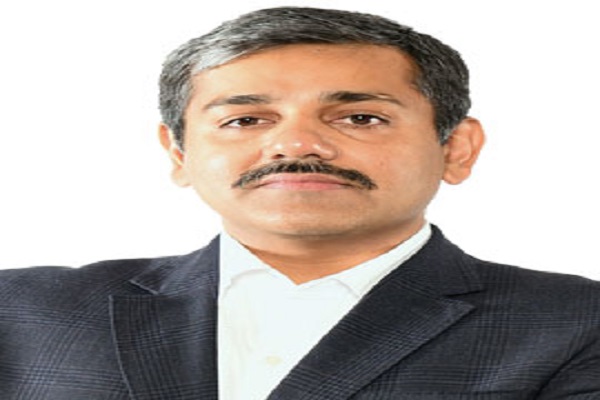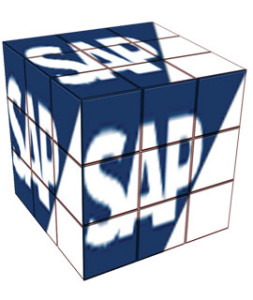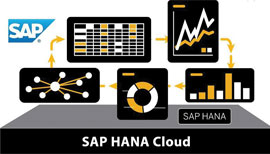
SAP is actively driving the digital transformation agenda in public sector and the company sees a big role for its HANA platform in enablement of real-time decision making, says Siddhartha Gupta, Head Strategic Industries (Public Services, Public Utility & Public Sector Undertakings) – SAP, in an interaction with Elets News Network (ENN)
In what all ways is SAP surging towards enablement of government agencies through the power of technology?
The enabling role of technology in transformation of Indian Government’s service delivery is now undergoing a phase of shift. With holistic, structured and well-packaged initiatives like Digital India, Smart Cities and Make in India, the platform is ready for an all-round exploitation of the potential of technology for performance improvement of the government organisations.
We at SAP have been really privileged to partner with the government entities, including Central and state governments, PSUs and stateowned enterprises in their endeavour to improve performance. Our experiences so far have really been exciting. The Indian Railways issues more than eight million unreserved tickets per day on SAP system. SAP drives their quest for efficiency in 1,600 rail coaches built every year. Euro 4.8bn naval budget runs on SAP. In the public governed utilities segment – almost 46 per cent of India’s power output is run on SAP systems. The Municipal Corporation of Greater Mumbai (MCGM) has deployed SAP as the enterprise resource planning solution, touching 12 million citizens across 200 citizen services, 34 departments and 120,000 employees. Then, SAP powers the cooperative milk revolution in India, which produces 13.5 million litres of milk per day, touching the lives of 800,000 rural farmers and 80 million citizens. Major public ports, government owned shipbuilding centers have reposed their faith in us.

What are the key futuristic tech trends being championed by SAP, which you envisage would make a game changer in the delivery of public services in the country?
 At SAP, we are actively driving the digital transformation agenda in public sector. We see a big role for our HANA platform in enablement of real-time decision making. Going forward, I feel a unified or omni channel experience for a stakeholder, irrespective of the interface (desktop, laptop or mobile etc.), would be a key requirement. It is heartening to see government’s initiatives on Cloud, including the proposed empanelment of Cloud service providers. With the vast transactional data, stage is set for real-time analytics-based performance decisions in the government. Many states have come out with innovative mobile applications. IoT is another focus area in Digital India. We are aiming to help the government run simple through a holistic integration of all these technologies.
At SAP, we are actively driving the digital transformation agenda in public sector. We see a big role for our HANA platform in enablement of real-time decision making. Going forward, I feel a unified or omni channel experience for a stakeholder, irrespective of the interface (desktop, laptop or mobile etc.), would be a key requirement. It is heartening to see government’s initiatives on Cloud, including the proposed empanelment of Cloud service providers. With the vast transactional data, stage is set for real-time analytics-based performance decisions in the government. Many states have come out with innovative mobile applications. IoT is another focus area in Digital India. We are aiming to help the government run simple through a holistic integration of all these technologies.
Euro 4.8bn naval budget runs on SAP. Almost 46 percent of India’s power output is run on SAP systems. SAP powers the cooperative milk revolution in India, which produces 13.5 million litres of milk per day, touching the lives of 800,000 rural farmers and 80 million citizens
Out of your vast experience in deploying eGovernance solutions across the spectrum, what has been your learning pertaining to the ‘one size fits all’ vis-a-vis ‘custom-tailored configurations’?
Increasingly, there seems to be an appreciation to go for solutions with fast development and implementation cycles. And, with replicability of solutions becoming common, we see an increasing role for product-based offerings in preference to custom development, subject to feasibility. The backend operations (Government to Government and Government to Employee) in government have always offered a favourable stage for productised offerings. With growing maturity, the G2C and G2B solutions are also being addressed through product offerings. However, having said so, it is important to evaluate the solution design based on factors, like project objectives, feasibility, sustainability, replicability and criticality.
 Implementation remains the key sore of any technological deployment, especially so in the domain of governance. What has been the speed and scalability of SAP solutions in this regard?
Implementation remains the key sore of any technological deployment, especially so in the domain of governance. What has been the speed and scalability of SAP solutions in this regard?
Our partners have come a long way in adopting implementation strategies, specifically suited for the Indian Government projects. The large and complex nature of government projects requires solutions, which can be scaled at speed as a result of unplanned changes. Of late, the business models of eGovernance projects also require innovative solution deployment to minimise implementation risks. In some projects, implementation agencies have to face the huge increase in anticipated data and transaction volumes. This is precisely where our solution offerings play a key role in optimising the cost and design of solutions. Our in-memory platform HANA offers tremendous potential for resource optimisation.
I would also like to add the important point of industry-government collaboration at the project planning stage itself to ease out the implementation challenges at the later stages. Early involvement of industry can definitely help in solution optimisation and overcoming implementation difficulties.
Would you like to share a case in point for each one of these aforesaid cases to appreciate the characteristic approach at SAP?
We are fast progressing and evolving our strategy to become the Cloud Company powered by HANA. There are a number of success stories that I can highlight. We are already offering Cloud-based solutions to PSUs in India. G2C projects, like the unreserved ticketing systems, are examples of huge transactional volumes. Our solutions are being used for fraud prevention and detection in sales tax. Organisations across the infrastructure have SAP as their decision-making backbone.
In a nutshell, we are excited to be a part of India’s journey towards digital economy. We are keen to contribute to the success of the flagship programmes of the government in every possible way.
Be a part of Elets Collaborative Initiatives. Join Us for Upcoming Events and explore business opportunities. Like us on Facebook , connect with us on LinkedIn and follow us on Twitter, Instagram.











